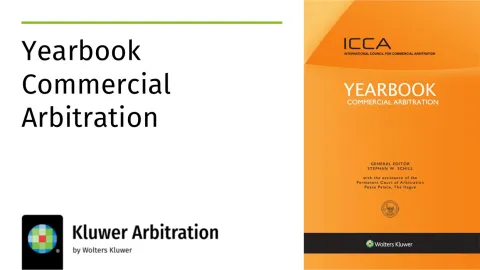Confidentiality in Arbitration: Lessons from England and a Singapore Perspective
September 18, 2025
Confidentiality is one of the defining features of arbitration, but how far does that duty go—and when can information from one arbitration be used in another? In this article, we (i) examine the English High Court's judgment in A Corporation v Firm B and Mr W [2025] EWHC 1092 (Comm) (the "Judgment"), which provides crucial guidance on the scope of confidentiality in arbitrations governed by English law, and (ii) draw a comparison between the legal frameworks governing arbitral confidentiality in England and Singapore. These two jurisdictions are frequently compared given their shared common law heritage, prominence as international arbitration centres, and the influence their courts exert on global arbitral practice—a comparison underscored by the 2025 Queen Mary University of London International Arbitration Survey, which ranked London and Singapore as the top two most preferred seats globally. The decision offers practical insights for practitioners on the use of information and documents from one arbitration in another, an issue commonly faced by law firms acting for different parties in related proceedings.
The case concerned whether a law firm (Firm B) could act against a company (D Corporation) when it possessed confidential information from a previous arbitration where it had acted for another client against D Corporation's sister company (A Corporation).
A Corporation, applied for an injunction to stop Firm B from representing its new client (C Corporation) in an ongoing arbitration against D Corporation. The application was grounded on the allegation that Firm B was leveraging confidential information from the first arbitration for use in the second, in breach of its duties.
The English Position: Balancing Confidentiality with Legitimate Use
Under English law, a duty of confidentiality is generally implied into the arbitration agreement as a matter of substantive law, a principle derived from the inherently private nature of the arbitral process.
Scope of confidential material: What is generally confidential?
The obligation extends to: (1) arbitration hearings, including transcripts and notes; (2) documents disclosed by one party to another within the arbitration; (3) documents "generated" or "prepared for" and then used in the arbitration (e.g., pleadings, witness statements, expert reports, written submissions, and correspondence related to the arbitration); (4) the arbitral award itself; and (5) information derived from these confidential documents.
What is generally not confidential?
Importantly, the Judgment distinguishes that a party's own documents, existing independently of the arbitration, do not become confidential merely by being used in the arbitration. Furthermore, the fact that a commercial dispute leads to arbitration, or the events giving rise to it, are not inherently confidential.
Distinction from lawyer's general experience
The Judgment also draws a crucial distinction between confidential information and the general experience that lawyers gain from conducting arbitrations. Lawyers are not precluded from applying their general knowledge, litigation strategies, or understanding of industry practices learned from previous cases, provided it does not involve the misuse of specific confidential information.
Derived information
The Judgment reinforces that information derived from confidential arbitral documents is also protected, underscoring the breadth of the implied duty.
What are the exceptions to confidentiality?
The Judgment reiterates established exceptions where disclosure of confidential arbitral information may be permissible. First, where there is express or implied consent from the parties; second, where a court orders or grants leave for disclosure (not a general discretion to lift the obligation); and third, where disclosure protects the legitimate interests of an arbitrating party.
Where it is "reasonably necessary for the protection of the legitimate interests of an arbitrating party," disclosure is permitted. This principle allows for the use of arbitral materials in several situations, including: (1) to establish issue estoppel based on a finding in a prior award; (2) to use evidence that contradicts testimony given by the same witness in a previous arbitration; (3) to make or defend claims involving a third party; and (4) to seek similar fact evidence from a third party.
Last, confidentiality may be overridden when disclosure is necessary for the interests of justice or the public interest. Significantly, the court clarified that this duty operates on a "sliding scale," whereby the ease of establishing an exception and the likelihood of obtaining an injunction are both weighed against the sensitivity of the information.
Significance of the Case
This Judgment is significant for several reasons.
First, the Judgment will be a useful guidance for arbitration practitioners. More precisely, the decision offers valuable, practical insights for practitioners regarding the application of confidentiality principles by English courts, particularly in complex scenarios involving numerous parties across interconnected arbitrations.
Second, the Judgment provides useful clarification on the test applied when considering the effectiveness of measures (like information barriers) employed by multi-office firms to prevent the transfer of confidential information. While "Chinese walls" are recognised, the burden remains on the applicant to show a "real risk of prejudice."
Third, the Judgment illustrates that there is no general restraint imposed on firms. That is, the court emphasised that in cases where the firm did not previously act for the applicant, the court will typically restrain the use of confidential information rather than prohibiting the firm from continuing to act for the new client, unless there is a clear and convincing risk of prejudice.
The Singapore Approach: Strong Confidentiality, with Narrow Exceptions
In Singapore, the duty of confidentiality in arbitration is an implied obligation at law. This principle, which arises independently of any institutional rules and is rooted in public policy, was affirmed by the courts in AAY & Ors v AAZ [2011] 1 SLR(R) 1093. This common law position is also reflected and codified in the rules of leading arbitral institutions, such as in Rule 59 of the Singapore International Arbitration Centre (SIAC) Rules 2025. It has been further suggested that the rules of leading arbitral institutions may allow for the duty of confidentiality to exist beyond an implied obligation in law (for Singapore-seated arbitrations), and find expression in the parties' agreement (see CZT v CZU [2023] 5 SLR 241 ("CZT v CZU"); and David Isidore Tan, It’s No Secret(?) – Two Recent Singapore Cases on Confidentiality in the Context of International Arbitrations, Kluwer Arbitration Blog (August 4, 2023)).
Scope of confidential material
The confidentiality obligations extend to: (1) the existence of the proceedings; (2) the discussions and deliberations of the Tribunal, Court, and secretariat (CZT v CZU); (3) the pleadings, evidence, submissions, and other materials and written communications in the arbitral proceedings; (4) all other documents produced by another party in the proceedings; and (5) any decision, ruling, order, or award (see Sundaresh Menon, Arbitration in Singapore, A Practical Guide (Sweet and Maxwell, 2nd Ed, 2018)).
Exceptions to confidentiality
The disclosure of confidential arbitral information may be permissible in the following scenarios, where disclosure is (1) by consent of the other party; (2) by order or leave of the court; (3) reasonably necessary (e.g., where the disclosure of arbitration pleadings and documents is reasonably necessary to support a party's case that the suit is vexatious and an abuse of process of court); (4) in the interests of justice where "ordering production of the records of [arbitration] deliberations outweigh the policy reasons for the protection of the confidentiality of deliberations"; (5) for the purpose of making an application to any competent court of any jurisdiction to challenge or enforce the award; or (6) for the purposes of enforcing a legal right or claim, perhaps after a "prima facie review of the [arbitration] deliberations by the court" (see CZT v CZU; Myanma Yaung Chi Oo Co Ltd v Win Win Nu & Anor [2003] 2 SLR(R) 547).
It must be noted that once confidentiality of the arbitral information has been lost (i.e., due to disclosure of confidential information which has now become publicly available), the court will not lend aid to protect the confidentiality of the information and the arbitration (see Karan Chandur Tilani v Maarten Hein Bernard Koedijk and another [2024] 2 SLR 361, at 16-17).
Scope of Obligations of Confidentiality of Lawyers in Singapore
The principles of confidentiality articulated in CZT v CZU have a broader relevance than the specific facts of that case might suggest. Though the judgment addressed disclosure from arbitrators, its rationale should also govern the obligations of law firms managing complex, multi-arbitration scenarios with different parties.
In LVM Law Chambers LLC v Wan Hoe Keet [2020] SGCA 29, the Respondents applied for injunctive relief to restrain the Appellant from acting against them. The Respondents alleged that the Appellant owed the Respondents the obligation of confidentiality insofar as the Appellant possessed confidential information from a previous settlement agreement where the Appellant had acted against the Respondents in a similar suit.
The Court of Appeal set out the requirements before a lawyer is precluded from acting for its client (at 15): first, the information concerned must have the necessary quality of confidence about it. Second, the information must have been received by the lawyer (or firm) concerned in circumstances importing an obligation of confidence. Last, there is a real and sensible possibility of the information being misused.
Although the Singaporean case arose from litigation and a settlement agreement, its central finding aligns with the English decision. The court affirmed the principle that a law firm will generally not be disqualified from acting for a client unless there is a real and sensible risk of a confidentiality breach.
What This Means for Arbitration Practitioners
Legal precedents in both jurisdictions offer two key takeaways for arbitration practitioners.
They highlight the need for parties and their counsel to respect strict confidentiality obligations and the very limited grounds for using information from one arbitration in another. They also confirm that courts will not disqualify a law firm from acting in a related matter unless a high bar is met, namely a "clear and convincing risk of prejudice" or a "real and sensible possibility of the information being misused."
In a landscape where multiple arbitrations often arise from a single commercial relationship, parties and counsel alike must take care to manage confidential information appropriately or risk derailing their case.
You may also like










